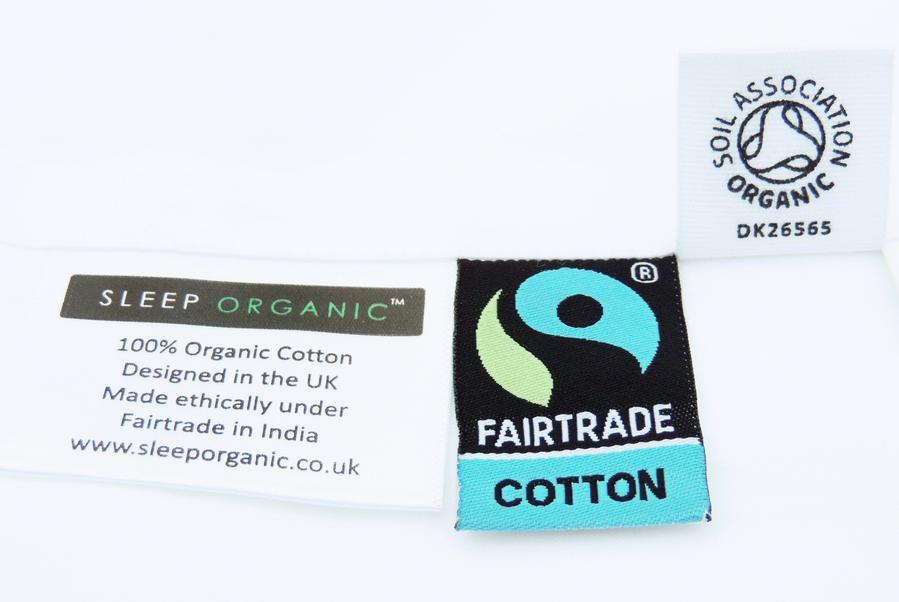
Organic products are produced as nature intended, free of artificial interference by genetically modified organisms (GMO’s) and toxins. They are typically of a much higher quality, are better for you, and kinder to the planet and the atmosphere. Can we really afford not to go organic?
Organic Certification
Any product labelled organic must meet a set of strict criteria. In the UK, organic products are approved by the Soil Association through Global Organic Textile Standard - GOTS certification, the leading regulatory body worldwide that evaluates produce to decide whether it meets the criteria necessary to be called organic.
To earn the label organic a product has to meet, among others, the following requirements…
- No toxic heavy metals, formaldehyde, aromatic solvents, nano-particles, genetically modified organisms (GMO) and their enzymes
- Chemical inputs should be biodegradable
- Technical quality parameters must be met (e.g. rubbing, perspiration, light and washing fastness and shrinkage values)
- Raw materials, intermediates, final textile products as well as accessories must meet stringent limits regarding unwanted residues
- Strict social criteria must be met in accordance with the International Labour Organisation
Organic cotton
 Organic Cotton is cotton farmed from non-genetically modified plants, without the use of noxious pesticides or chemicals. Organic cotton farming has a low impact on the environment and offers proven benefits for people and the planet. When done correctly, it uses less water, protects worker’s health, and reduces the amount of chemicals and toxins in our biosphere and in our bodies.
Organic Cotton is cotton farmed from non-genetically modified plants, without the use of noxious pesticides or chemicals. Organic cotton farming has a low impact on the environment and offers proven benefits for people and the planet. When done correctly, it uses less water, protects worker’s health, and reduces the amount of chemicals and toxins in our biosphere and in our bodies.
Research has found ordinary cotton contains several harmful pesticides and chemicals that are seriously damaging to our immune system. Indeed, nine of the most common of these have been found to be highly toxic, and five are known carcinogens that have been proven to cause cancer!
It’s not just serious side effects that could result from continuing to sleep on industrially farmed cotton sheets though.
Fairtrade

By opting for Fairtrade-certified organic cotton bedding, you can have a better night’s sleep knowing your purchase hasn’t contributed to human misery and exploitation.
Fairtrade ensures a better deal for farm workers who rely on their wages to feed their families. In poorer countries these workers are often the sole breadwinners for the family, and usually have several dependents, so they are in an especially vulnerable position.
Good news! Organic and Fairtrade can be Affordable
If you want to make the change to organic bedding, make sure the products you choose carry Soil Association (GOTS) certification and look for the Fairtrade label when you buy too.
 The future for organic cotton looks bright as demand for a healthier lifestyle grows year on year, with people becoming more aware of the ethical and ecological benefits of going organic. This is helping to keep the cost of organic produce at a competitive level. What better time than now to make the switch over to organic bedding and enjoy improved health, and the knowledge you’re doing your part to save our planet and ensure a fairer deal for cotton workers?
The future for organic cotton looks bright as demand for a healthier lifestyle grows year on year, with people becoming more aware of the ethical and ecological benefits of going organic. This is helping to keep the cost of organic produce at a competitive level. What better time than now to make the switch over to organic bedding and enjoy improved health, and the knowledge you’re doing your part to save our planet and ensure a fairer deal for cotton workers?
